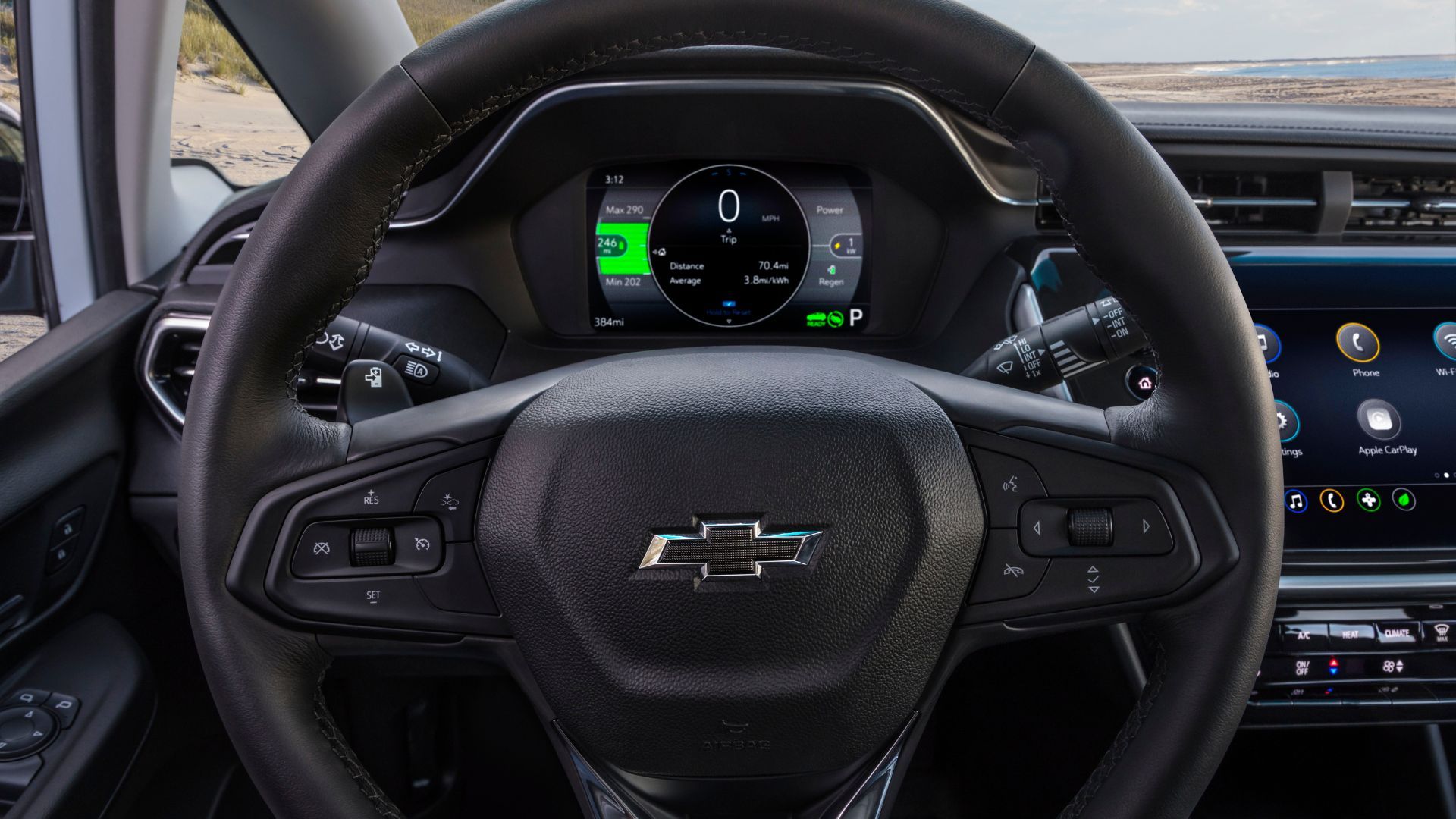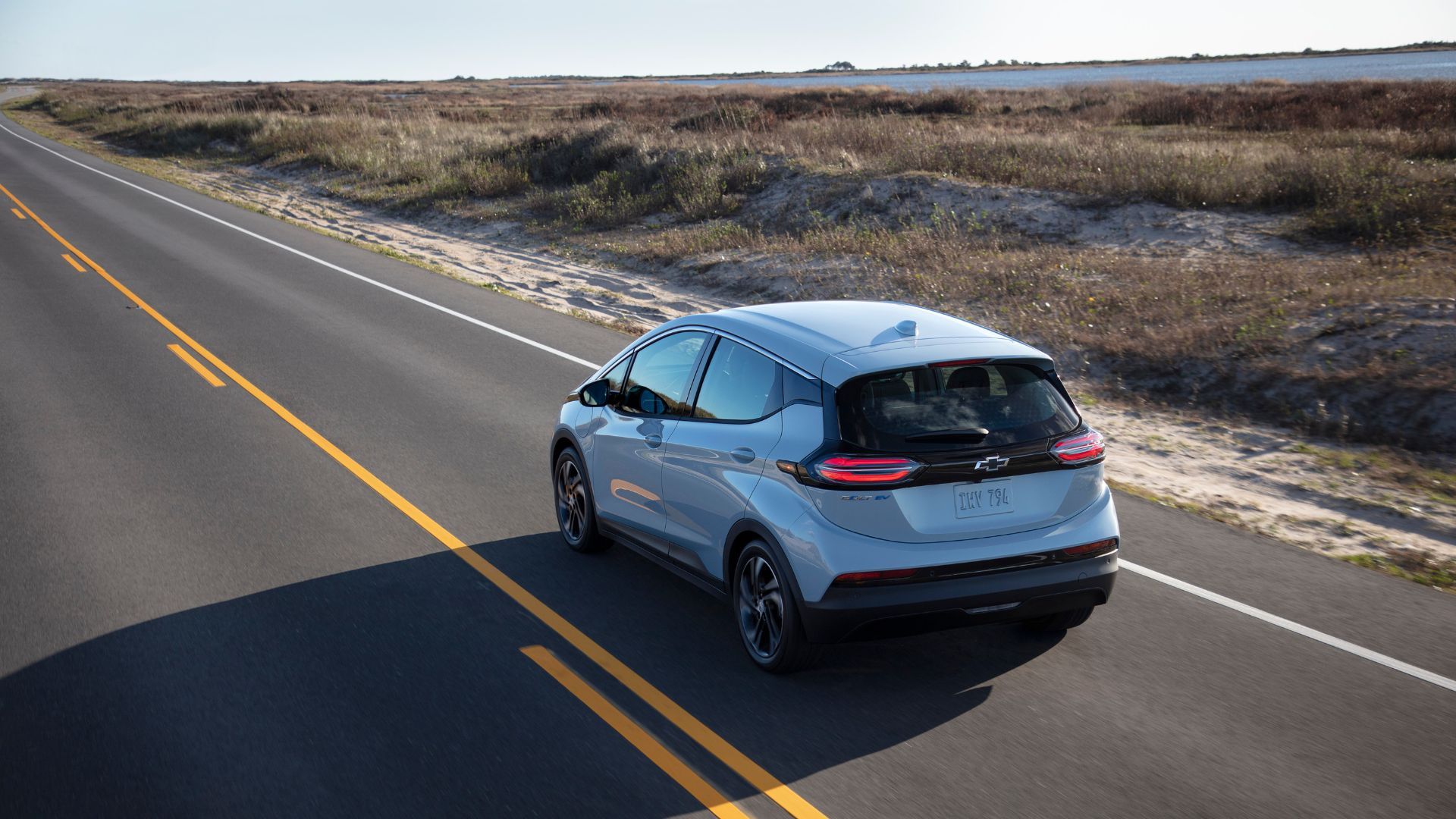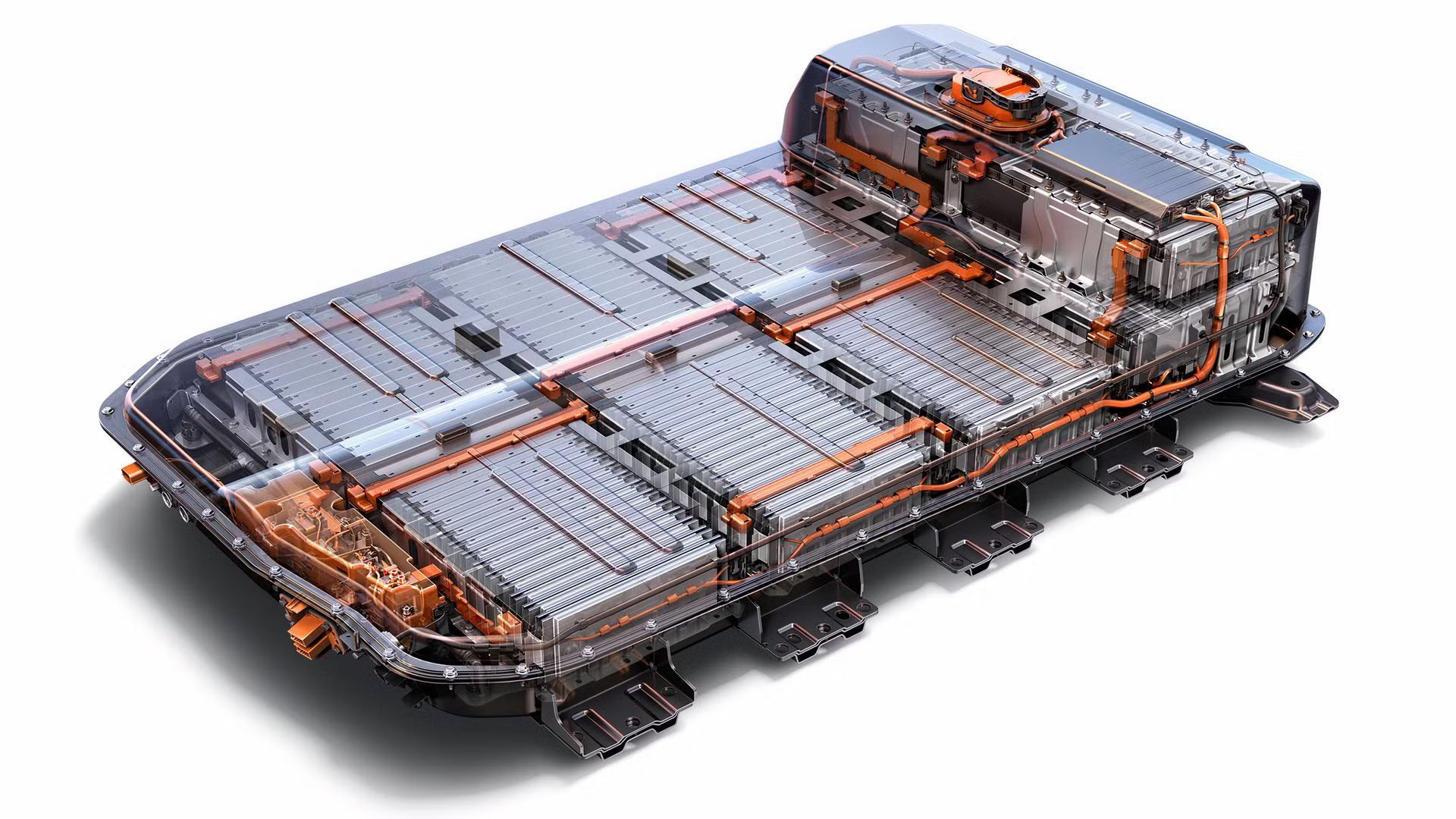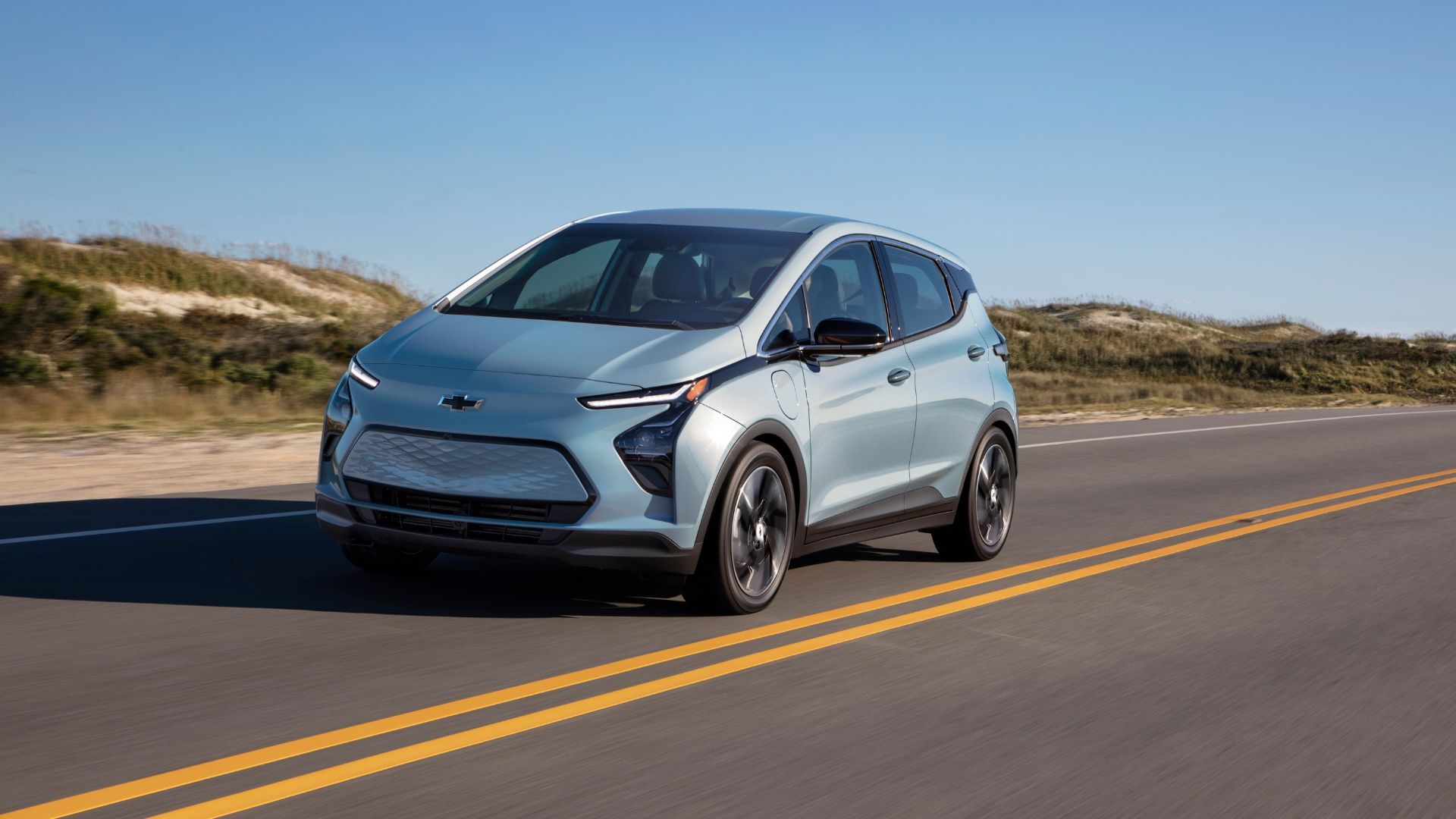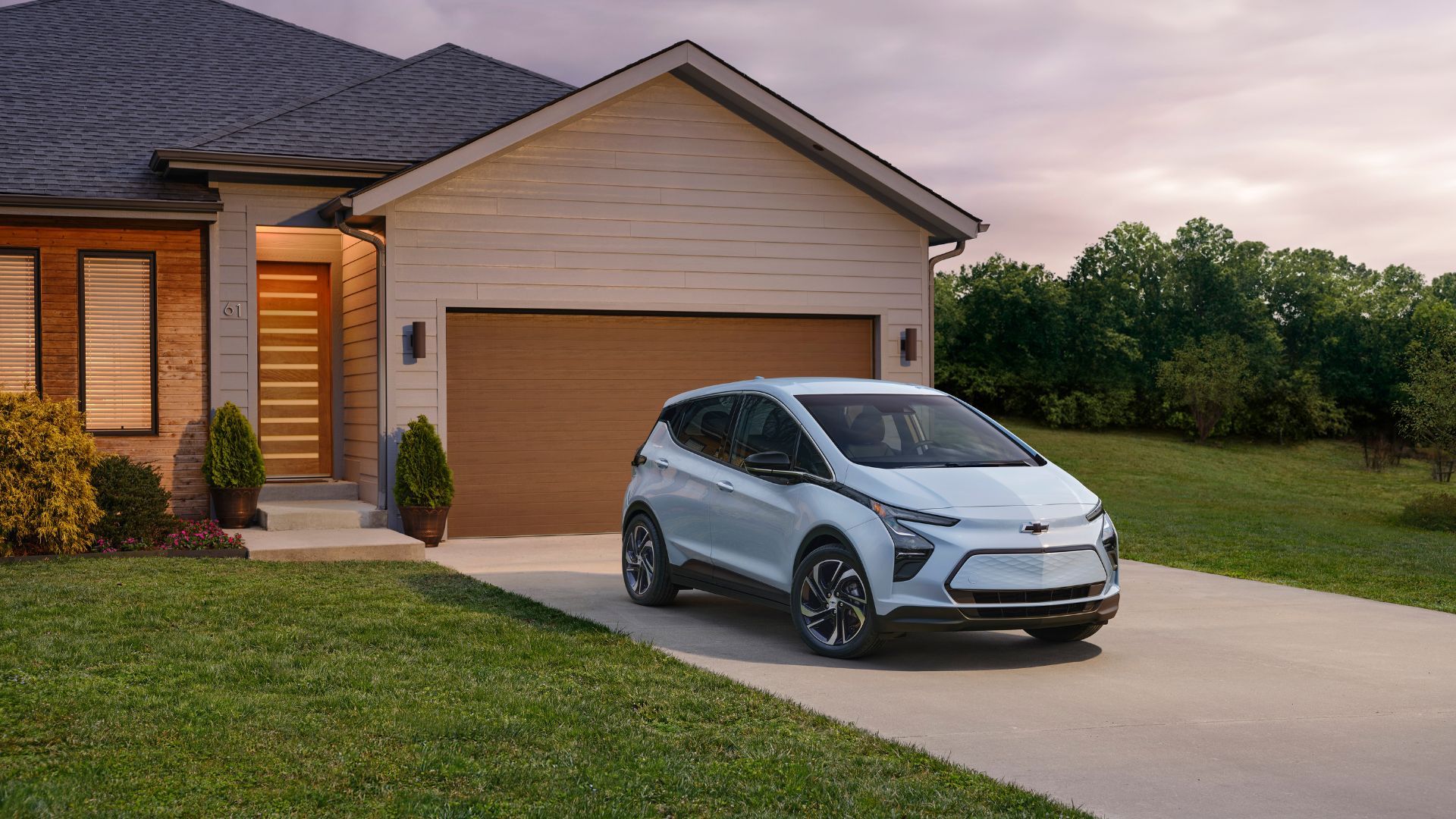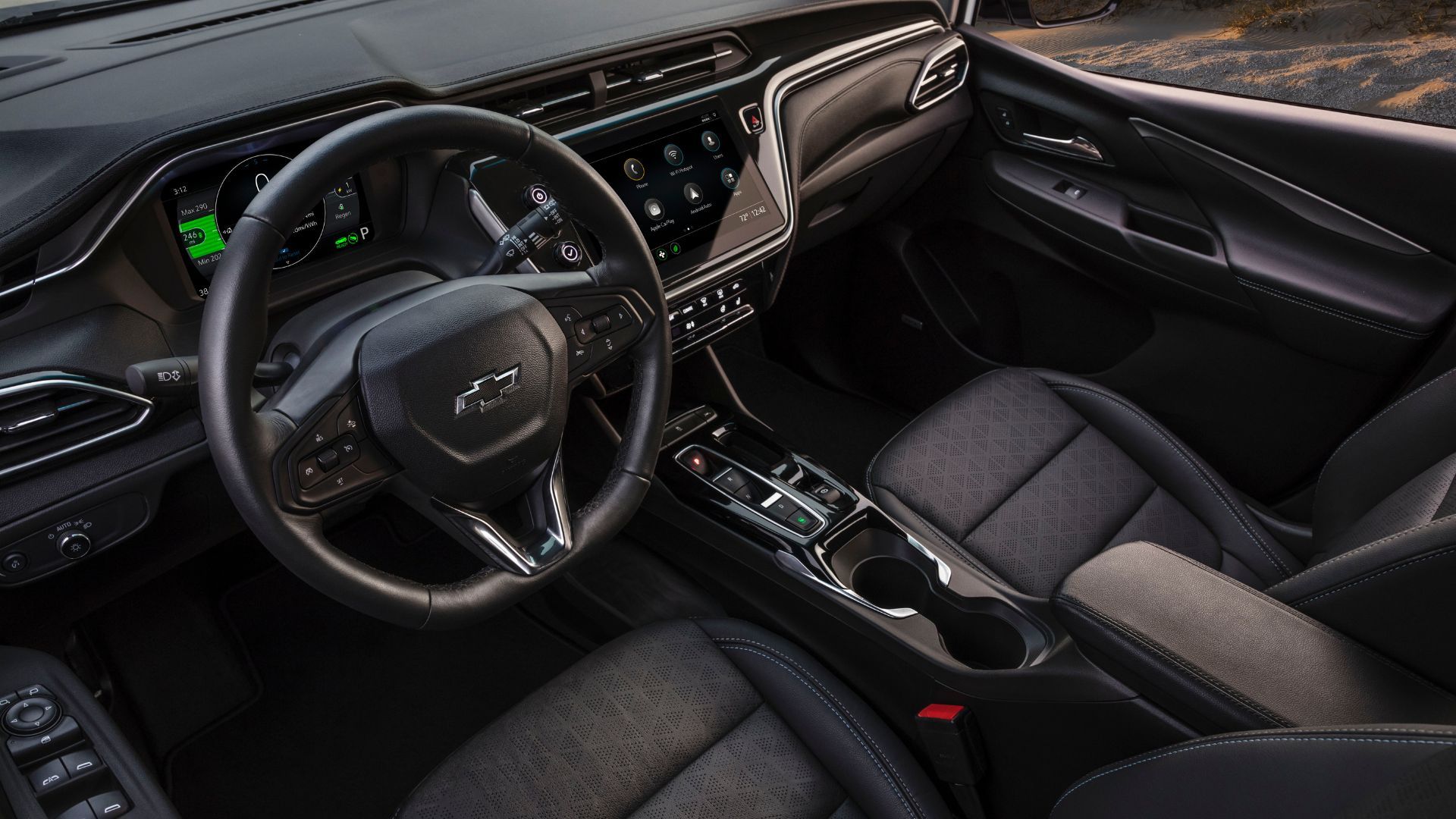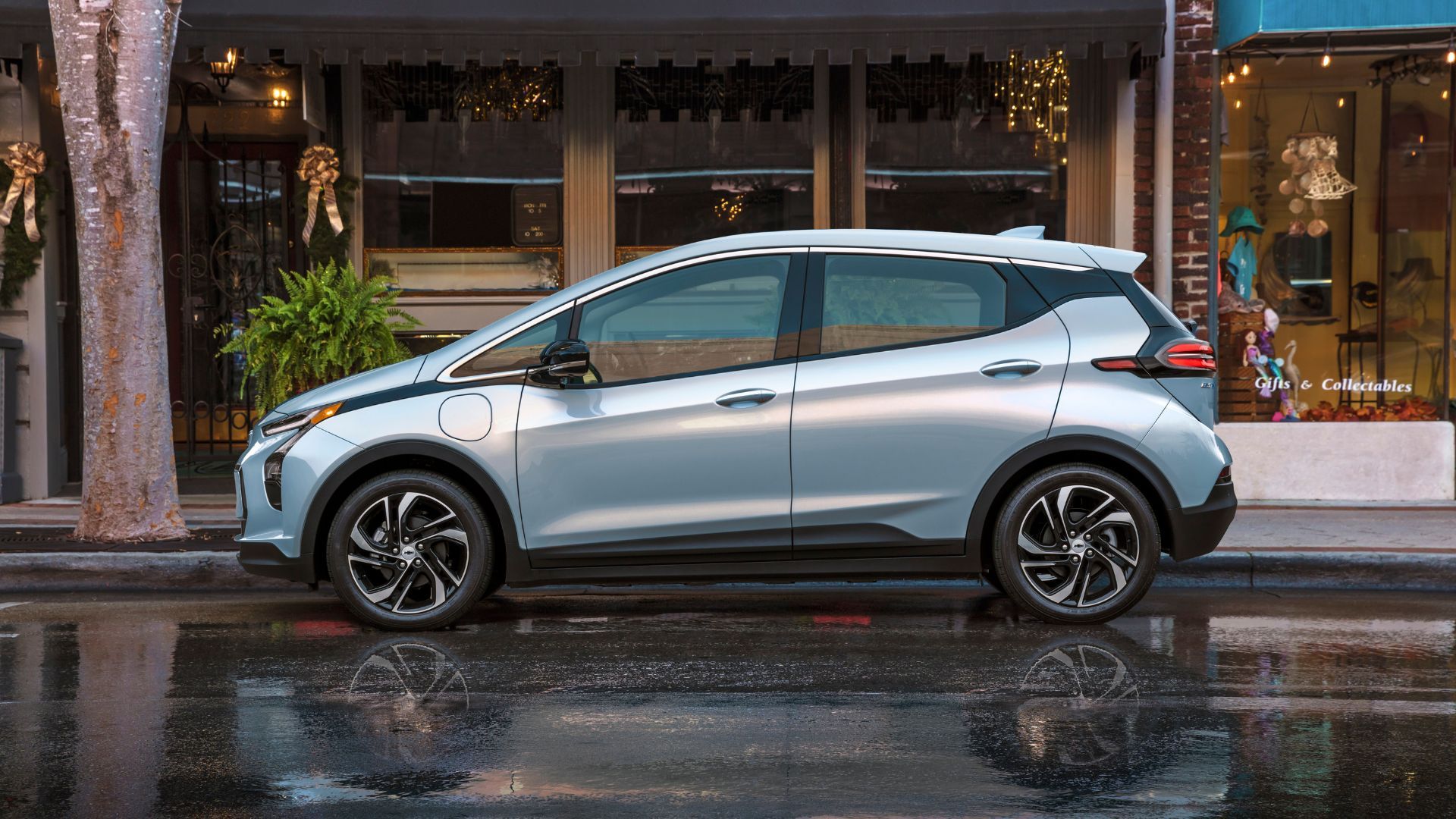
Electric cars are finally getting cheaper, but they still haven’t caught up to gas-powered vehicles when it comes to upfront affordability. Throw in faster depreciation, and it’s no wonder most people lease instead of buy, especially if they like having the newest tech every few years.
But for folks who want a solid, reliable EV without breaking the bank, the used market is the only option. The catch? Most secondhand EVs under $15K are outdated, tiny, or barely make it down the highway before needing a charge.
That’s why this particular model stands out. It hits the sweet spot of price, range, practicality, and features, proving that going electric on a budget doesn’t mean compromising everything else.
In order to give you the most up-to-date and accurate information possible, the data used to compile this article was sourced from Chevrolet and other authoritative sources, including iSeeCars and Nissan.
Chevrolet Bolt EV—the Best Bang-For-Your-Buck Used EV Today
Meet the small electric hatchback that quietly punches above its weight—the Chevrolet Bolt EV. Designed to take on the Nissan Leaf, it offers surprising practicality wrapped in an unassuming shell.
General Motors didn’t just build the Bolt EV to tick boxes; they built it to make a case for electric cars in the real world. It feels far more confident with solid range, usable space, and quick acceleration than its price tag suggests.
Even for those who’ve been skeptical about making the switch to electric, the Bolt EV makes a strong argument. It’s not flashy, but it gets the job done, with just enough charm to make you look twice.
Surprisingly Long Range for the Price
EVs from earlier years weren’t exactly known for long road trips, but the Chevy Bolt EV changed that narrative. With a 66 kWh battery and an EPA-estimated 259 miles of range, it delivered numbers that turned heads when it first launched—and still hold up today.
Considering that, it’s impressive to see used Bolts averaging between $13,900 and $23,391, according to iSeeCars. Models at the lower end of that range offer serious value, especially for anyone looking to go electric without draining their wallet.
Compare that to the Nissan Leaf, its main rival at the time, and the difference is clear. The Leaf+ tops out at 212 miles of range and still relies on the aging CHAdeMO charging port—an outdated standard even Japanese automakers are moving away from, while U.S. infrastructure shifts toward Tesla’s NACS system.
Surprisingly Smart for the Price
The Chevrolet Bolt never felt like a compromise behind the wheel. Its design is clean and modern, even if the materials seem more practical than premium—classic GM in that sense.
What stands out, though, is the tech. It comes standard with an 8-inch digital gauge cluster and a 10.2-inch infotainment system featuring Apple CarPlay and Android Auto, which still feel current.
In 2022, it leveled up with the addition of Super Cruise, GM’s hands-free semi-autonomous driving system. That made the Bolt the most affordable GM vehicle to offer the feature, bringing futuristic tech to the everyday driver.
|
Nissan Leaf |
Nissan Leaf+ |
Chevrolet Bolt |
Chevrolet Bolt EUV |
|
|---|---|---|---|---|
|
Electric Motor Layout |
Front-drive electric motor |
Front-drive electric motor |
Front-drive electric motor |
Front-drive electric motor |
|
Horsepower |
148 hp |
215 hp |
200 hp |
200 hp |
|
Torque |
240 lb-ft |
240 lb-ft |
266 lb-ft |
266 lb-ft |
|
Max. AC Charge Rate |
6.6 kW (Type 1) |
6.6 kW (type 1) |
11.5 kW (Type 1) |
11.5 kW (Type 1) |
|
Max. DC Charge Rate |
50 kW (CHAdeMO) |
100 kW (CHAdeMO) |
55 kW (CCS1) |
50 kW (CCS1) |
|
0-60 MPH |
N/A |
N/A |
6.5 seconds |
N/A |
|
Top Speed |
149 miles |
212 miles |
259 miles |
247 miles |
In 2022, the Bolt got a fresh new look, and with it came a tougher sibling—the Bolt EUV. With a higher ride height and chunkier styling, it catered to the SUV-loving crowd without straying too far from its compact roots.
This more rugged version helped Chevy tap into the crossover craze still sweeping the U.S. market. Of course, that bulk came at a small cost: the range dipped slightly to 247 miles.
It’s the tradeoff you make when turning a city sneaker into something that looks ready for the trail. Still, for many buyers, the added style and space made it well worth it.
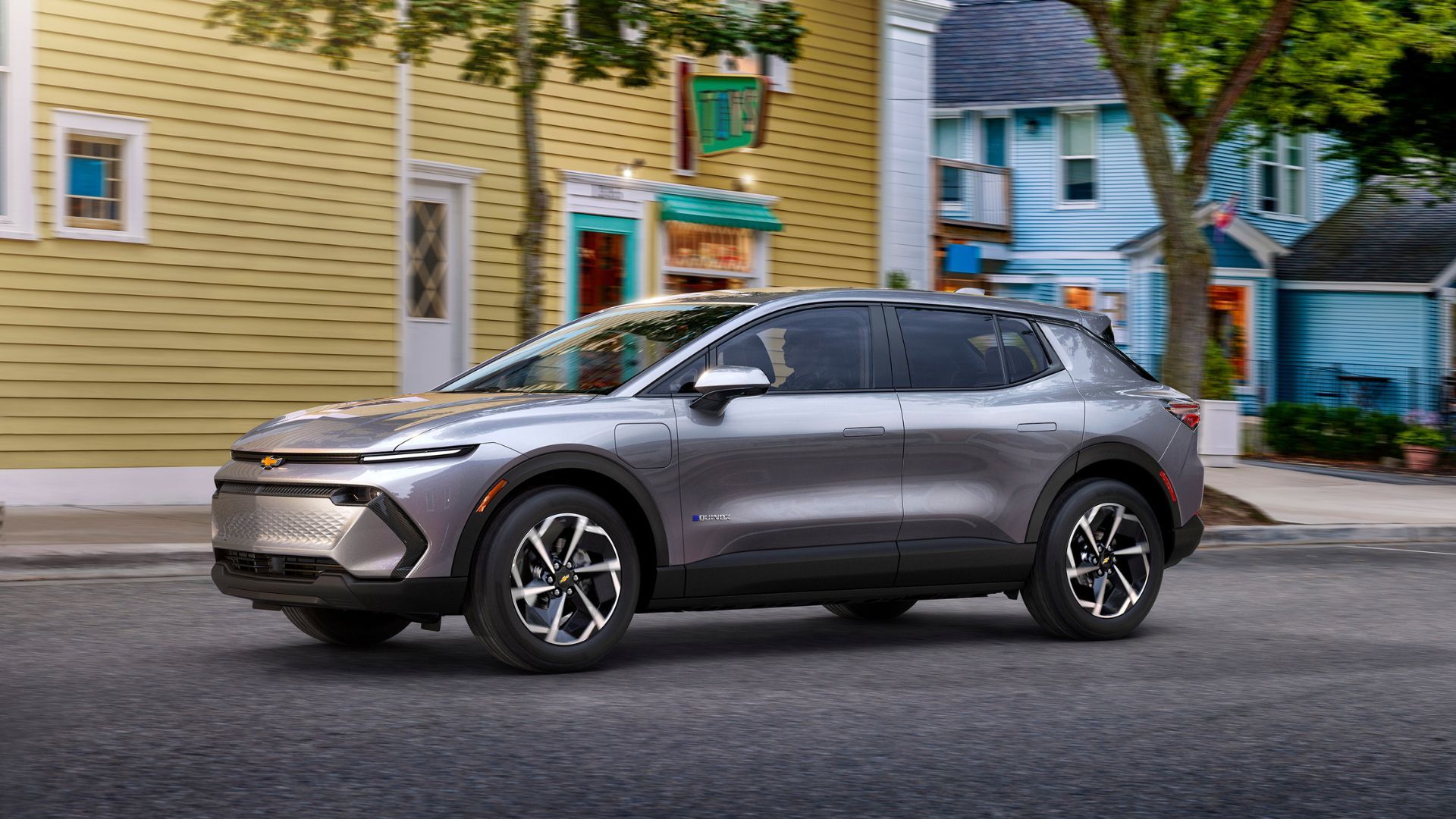
Related
The Cheapest EVs With Over 300 Miles of Range in 2025
Looking for long range without the luxury price tag? These budget-friendly EVs prove you don’t have to spend big to go the distance in 2025.
What to Know Before You Buy a Used Bolt
Electric cars don’t age like gas-powered ones, so buying a used Bolt means keeping an eye on a few unique things. Every buyer should also be aware of an important recall from its production run.
Knowing what to watch for can save headaches down the road—and keep your EV experience smooth and worry-free. Here’s the lowdown on what matters most when shopping for a used Bolt.
A Quick Note on the Bolt’s Battery Recall
In 2020, GM recalled the Chevrolet Bolt because some LG Chem lithium-ion batteries had a risk of catching fire. The issue mainly occurred when the battery was charged close to or at 100 percent.
Thankfully, GM fixed the problem by replacing the battery. It’s essential to confirm that the previous owner did this before buying.
The new batteries have an 8-year warranty, offering added peace of mind. Meanwhile, the old batteries have been repurposed as grid storage, giving them a second life.
Reliable and Ready to Roll
Cars with simple, no-frills tech often hold their value best because they’re just plain reliable. The Bolt EV fits that mold nicely, scoring a solid 7.1 out of 10 on iSeeCars’ reliability scale, making it the third most reliable used EV under $15,000.
Only the Hyundai Ioniq Electric and the quirky-but-cool BMW i3 rank higher, showing that steady, straightforward engineering wins in the long run. When it comes to what to watch for in a used Bolt, the list is pretty short.
The brakes tend to last longer thanks to regenerative braking, and the EV’s simple mechanics mean no oil changes or spark plugs to worry about. Plus, EV batteries often outlast expectations, especially if the Bolt you buy has already replaced its recalled battery.
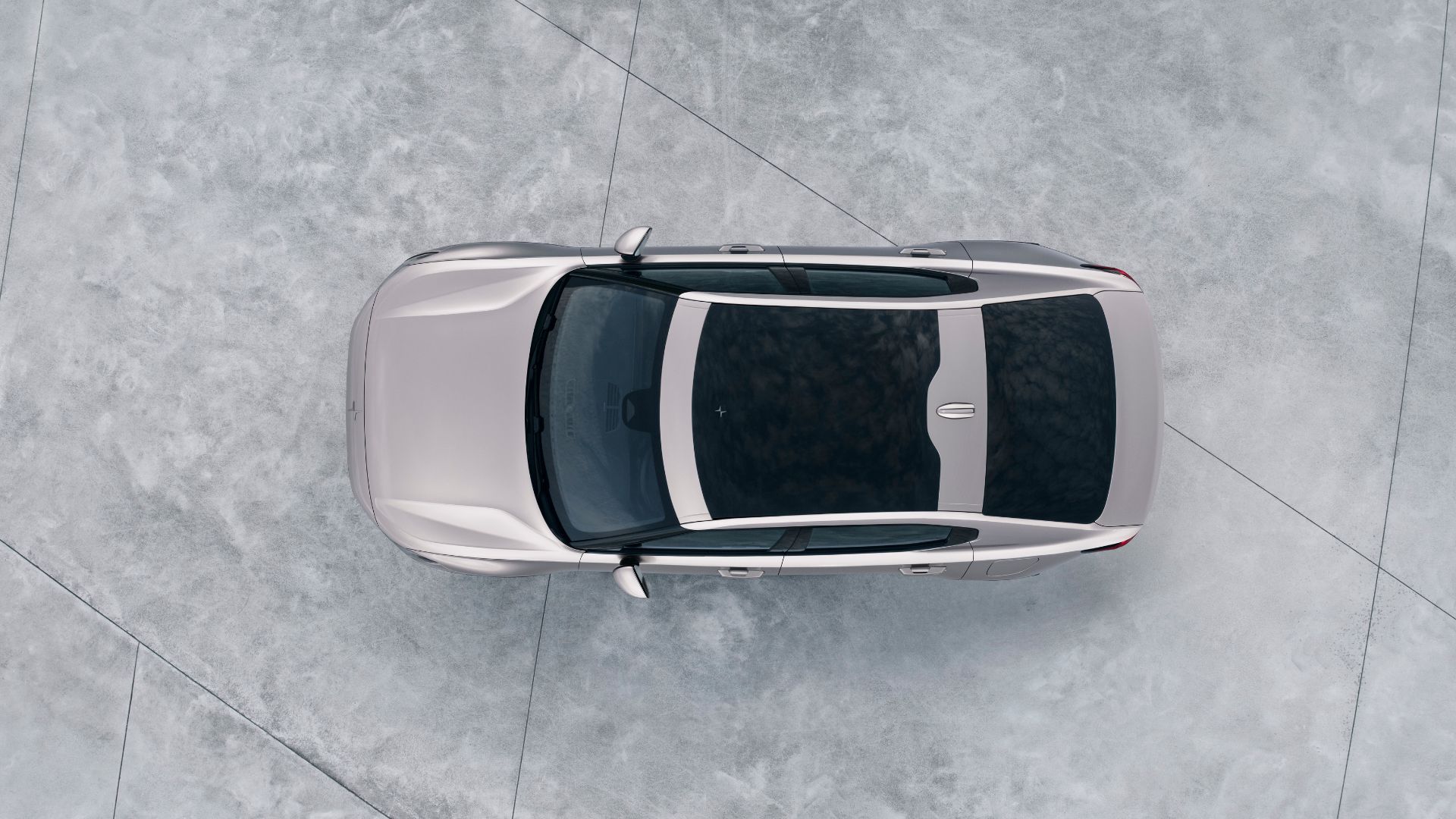
Related
This Used EV Might Be the Best-Kept Secret in Affordable Luxury
This underrated EV flies under the radar but ranks among the best in used luxury electric vehicles.
More Reasons to Love the Bolt
Now that the Bolt EV’s reliability and ease of ownership are clear, let’s examine its appearance and practicality.
Sleek and Street-Smart
The Chevrolet Bolt is a tall, compact hatchback with proportions similar to the Honda Fit—remember when small cars were packed with clever design and innovative use of space? Think of the Bolt as the electric version of that, combining sleek style with a bit of personality thanks to its sharp lines and modern front end.
In 2022, the Bolt got a fresh update that amped up its contemporary vibe. The front grille was replaced with a body-colored hexagonal design, embracing the EV trend of grille-less styling, while two-tone wheels and full LED lights added extra flair.
The Bolt EUV steps in with a chunkier, rugged look if you want something tougher. It’s perfect for those who want a small electric hatchback but with a little more attitude and presence on the road.
Personality That Pops
The Chevrolet Bolt may be a small electric hatch, but its interior feels surprisingly modern and practical. It’s not about fancy materials or luxury touches—instead, it packs in plenty of tech and a design that has personality.
While it won’t match the space of a big SUV, the Bolt is roomy for its size, offering versatility reminiscent of the Honda Fit. It’s clever packaging that makes the most of every inch.
Our friends at TopSpeed managed to get behind the wheel of a Bolt EUV, confirming what makes the Bolt EV special. Both models deliver a quiet, smooth ride with instant torque and sharp handling, thanks to their low battery placement, which keeps the center of gravity nice and low.
Source link


